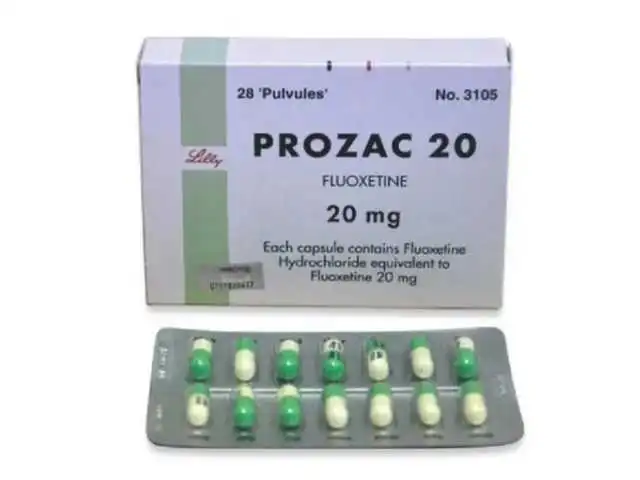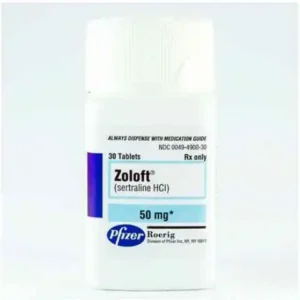Prozac is a brand name for the medication fluoxetine. It is another antidepressant medication, but it belongs to the class of drugs known as selective serotonin reuptake inhibitors (SSRIs), just like Zoloft. Prozac is used to treat a variety of mental health conditions, including:
- Major depressive disorder (MDD): Prozac is often prescribed to treat symptoms of depression, such as persistent sadness, loss of interest in activities, changes in appetite or sleep patterns, and feelings of hopelessness.
- Obsessive-compulsive disorder (OCD): Prozac is approved by the FDA as a treatment for OCD, which is characterized by repetitive, distressing obsessions and compulsive behaviors.
- Panic disorder: Prozac can help reduce the frequency and severity of panic attacks and is used for the long-term management of this condition.
- Bulimia nervosa: It is also used to treat bulimia, an eating disorder characterized by binge eating followed by behaviors to compensate for overeating, such as vomiting or excessive exercise.
- Premenstrual dysphoric disorder (PMDD): Prozac can be prescribed to alleviate the emotional and physical symptoms associated with PMDD, a severe form of premenstrual syndrome (PMS).
- Generalized anxiety disorder (GAD): While not its primary indication, Prozac may also be used to manage symptoms of GAD, including excessive worry, restlessness, and physical symptoms of anxiety.
Prozac, like other SSRIs, works by increasing the levels of serotonin in the brain, which is a neurotransmitter that plays a role in mood regulation. It’s essential to take Prozac as prescribed by a healthcare professional and to follow their guidance regarding dosing and potential side effects. Similar to other medications, it may take several weeks for the full therapeutic effects of Prozac to be realized.
Common side effects of Prozac can include nausea, diarrhea, dry mouth, insomnia, dizziness, and sexual dysfunction. More serious side effects are possible but less common.
As with any medication, it’s important to discuss the potential risks and benefits with your healthcare provider, as well as any specific concerns or questions you may have. Additionally, any changes to medication should be made under the guidance of a healthcare professional to ensure safety and effectiveness.
Certainly, here is some additional information about Prozac (fluoxetine):
- Post-traumatic stress disorder (PTSD): Prozac may be used off-label to help manage the symptoms of PTSD, such as flashbacks, nightmares, and severe anxiety related to past traumatic experiences.
- Premature ejaculation: In some cases, Prozac has been used off-label to help delay ejaculation in men with premature ejaculation issues.
- Binge eating disorder (BED): Prozac is approved by the FDA for the treatment of moderate to severe binge eating disorder, which involves recurrent episodes of consuming large amounts of food in a short time followed by feelings of guilt and distress.
- Discontinuation Syndrome: If Prozac or other SSRIs are stopped abruptly, some individuals may experience withdrawal symptoms known as discontinuation syndrome. It is essential to work with a healthcare provider to taper the medication gradually if discontinuation is necessary.
It’s important to note that the effectiveness of Prozac can vary from person to person, and the choice of antidepressant medication should be made in consultation with a healthcare professional. They will consider your specific symptoms, medical history, and potential side effects when determining the most appropriate treatment.
Like any medication, Prozac can have side effects, and these should be discussed with your healthcare provider. If you experience severe side effects or have concerns about your medication, it’s crucial to contact your healthcare provider to discuss potential adjustments or alternatives. Do not stop taking Prozac or any other prescription medication without medical guidance.
Always follow the dosing instructions and recommendations provided by your healthcare provider to ensure the safe and effective use of Prozac or any other prescription medication.





Reviews
There are no reviews yet.